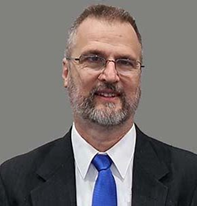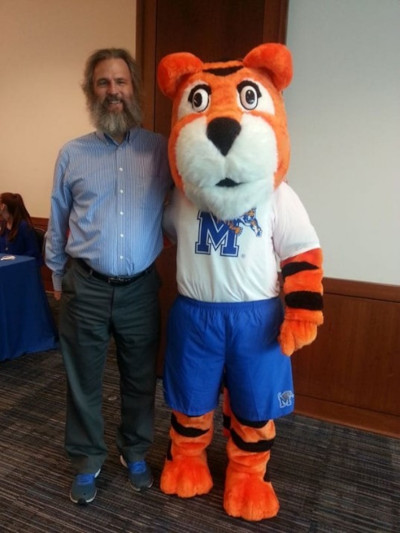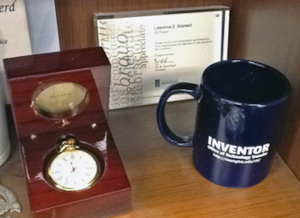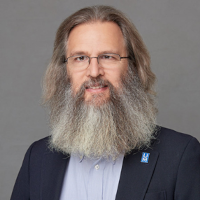IN MEMORIAM: ED BRAINERD
 Ed Brainerd's journey with the University of Memphis’s School of Communication Sciences
and Disorders was defined by dedication, innovation, and an unwavering kindness that
touched everyone who knew him. For over three decades, Ed devoted his talents to advancing
the use of technology in communication sciences and supporting the students and his
co-workers.
Ed Brainerd's journey with the University of Memphis’s School of Communication Sciences
and Disorders was defined by dedication, innovation, and an unwavering kindness that
touched everyone who knew him. For over three decades, Ed devoted his talents to advancing
the use of technology in communication sciences and supporting the students and his
co-workers.
Ed began his professional journey as a Research Assistant at the Institute for Intelligent Systems, where he worked under the guidance of Dr. Art Graesser while earning his master's degree at the University of Memphis. His primary focus was developing LISP software to model knowledge bases and arc search procedures, supported by a grant from the Office of Naval Research. This initial foray into the world of cognitive science ignited Ed's passion for technology and research, laying the groundwork for his future contributions to the field of communication sciences & disorders.
 In 1990, Ed joined the Department of Audiology and Speech-language pathology (later
SCSD) as a part of the Center for Research Initiatives and Strategies for the Communicatively
Impaired (CRISCI), where he played a crucial role in data collection and developing
analysis software. Collaborating with Dr. Robyn Cox and her team in the Hearing Aid
Research Lab, Ed contributed to software programs that revolutionized hearing aid
selection and fitting processes. Many of these programs, including the Screening Test
for Hearing Problems (STHP) and the Communication Profile for the Hearing Impaired
(CPHI), have been used by researchers and clinicians worldwide.
In 1990, Ed joined the Department of Audiology and Speech-language pathology (later
SCSD) as a part of the Center for Research Initiatives and Strategies for the Communicatively
Impaired (CRISCI), where he played a crucial role in data collection and developing
analysis software. Collaborating with Dr. Robyn Cox and her team in the Hearing Aid
Research Lab, Ed contributed to software programs that revolutionized hearing aid
selection and fitting processes. Many of these programs, including the Screening Test
for Hearing Problems (STHP) and the Communication Profile for the Hearing Impaired
(CPHI), have been used by researchers and clinicians worldwide.
By 2000, Ed was promoted to oversee computer support for all CRISCI researchers. He became the program’s webmaster, and developed software for a variety of programmatic needs, including scheduling software for the in-house clinic. His commitment to communication excellence led to the creation of a dynamic online platform that effectively showcased the achievements of faculty and students.
In 2009, Ed recognized the potential of social media as a tool for outreach and engagement, establishing timely dissemination of information regarding faculty and student accomplishments. This initiative marked a significant shift in the program’s communication with its stakeholders and the broader community.
 In 2015 the University completed a comprehensive redesign of the University’s website.
Ed rebuilt the program website and seven associated subsites. His meticulous attention
to detail ensured that the new platforms were user-friendly and aligned with the University
of Memphis Communication Sciences and Disorders mission to advance communication sciences.
In 2015 the University completed a comprehensive redesign of the University’s website.
Ed rebuilt the program website and seven associated subsites. His meticulous attention
to detail ensured that the new platforms were user-friendly and aligned with the University
of Memphis Communication Sciences and Disorders mission to advance communication sciences.
In 2017, Ed expanded his expertise again by studying Data Science, learning to utilize programming tools such as R, Python, and MATLAB. This venture into data analysis allowed him to contribute to research in innovative ways, further enhancing the programs' capabilities.
In 2019, Ed began exploring Unity3D to develop simulation environments for the CSD anechoic chamber, as well as creating an iOS application for an ecological momentary assessment study. His ability to embrace new technologies enriched the research landscape and fostered collaboration among faculty and students.
Ed completed his 30th consecutive year as the technical advisor to the Mid-South Conference on Communicative
Disorders in 2020. This milestone coincided with the onset of the COVID-19 pandemic, which necessitated rapid adaptation to new formats for conferences and
research dissemination. Ed’s resourcefulness and leadership during this period ensured
that the conference continued to serve as a vital platform for knowledge sharing and
collaboration. His friends and family also noted that working with students to host
the conference annually was one of Ed’s proudest professional achievements. He loved
working on the conference and was very diligent in his duties as an advisor to the
school’s NSSLHA chapter.
pandemic, which necessitated rapid adaptation to new formats for conferences and
research dissemination. Ed’s resourcefulness and leadership during this period ensured
that the conference continued to serve as a vital platform for knowledge sharing and
collaboration. His friends and family also noted that working with students to host
the conference annually was one of Ed’s proudest professional achievements. He loved
working on the conference and was very diligent in his duties as an advisor to the
school’s NSSLHA chapter.
Beyond his professional accomplishments, what set Ed apart was his kind and generous spirit. He was quick to lend a helping hand, always remembered people’s names, and made sure those around him felt supported and seen. Whether it was mentoring a student, troubleshooting a technical issue, or collaborating on research, Ed approached every task with a humility that belied his expertise. Ed’s legacy will continue to resonate within the University of Memphis and the broader community as we honor his memory and the countless lives he touched throughout his career.

